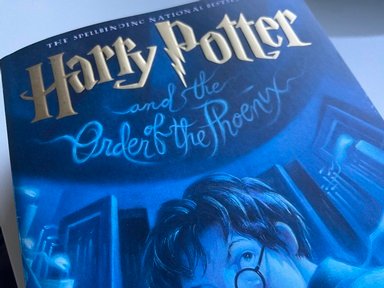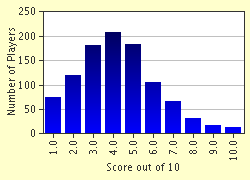Quiz Answer Key and Fun Facts
1. In book 5, Harry is tried for the "crime" of using magic outside Hogwarts by the Wizengamot. From what culture is the name "Wizengamot" derived?
2. The hospital in Book 5 was called St. Mungo's Hospital for Magical Maladies and Injuries. Who was the real St. Mungo?
3. Throughout most of this novel, Harry's arch-nemesis is Professor Umbridge, his Defense Against the Dark Arts teacher. Umbridge's name is most likely derived from a phrase that means...
4. "Occlumency" is not, in reality, a word. However, it seems to be derived from a familiar, real word that means "to block." What is this word?
5. What is the literal translation of the name "Albus Dumbledore"?
6. Many of the creatures studied in the Care of Magical Creatures class or encountered by Hogwarts students are based on mythological animals. Many others were made up by J.K. Rowling. Which of the following *is* a mythological creature?
7. Dobby the house-elf gets his name from another kind of creature. In English folklore, what is a dobby?
8. Percy Weasley's owl takes its name, quite appropriately, from the Greek messenger god. Who is this god?
9. Mundungus Fletcher is a disreputable little wizard with a penchant for trading in stolen goods. What, exactly, does mundungus mean?
10. Remus Lupin, the werewolf, has a name that is a double reminder of his traits. From what languages are his two names derived?
Source: Author
crisw
This quiz was reviewed by FunTrivia editor
bullymom before going online.
Any errors found in FunTrivia content are routinely corrected through our feedback system.

